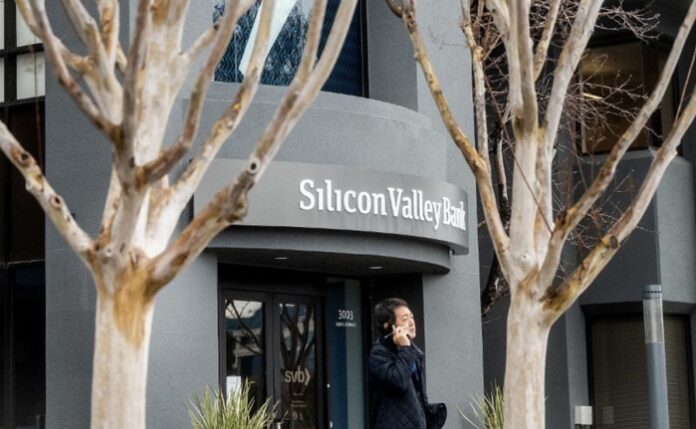| Translate This News In |
|---|
The nation’s biggest banks took action on Thursday to support First Republic, assuaging concerns that the local lender might fail after other institutions like Silicon Valley Bank.
The announcement that $30 billion would be deposited into First Republic came from a group of 11 US private institutions, including Bank of America, Citigroup, and JPMorgan Chase.
Following the failure of three midsized lenders in the past week, the action represents a dramatic effort by the lenders to support the system.
The biggest American banks’ action demonstrates their support for First Republic and all banks, according to a statement released jointly by the group.
The banks claimed, “Together, we are deploying our financial strength and liquidity into the broader system, where it is required the most.
Thursday’s closing price on Wall Street for First Republic shares was 10% higher after shares had previously declined.
“This show of support by a group of big financial institutions is most welcome, and demonstrates the enduring strength of the banking system,” said leaders of the Treasury Department, US Federal Reserve, Federal Deposit Insurance Corporation and Office of the Comptroller of the Currency in a joint statement.
Conviction vote’
Each of the following financial institutions—Bank of America, Citigroup, JPMorgan Chase, and Wells Fargo—will make a $5 billion uninsured transfer into First Republic, while Goldman Sachs and Morgan Stanley will each contribute $2.5 billion.
PNC Bank and US Bank are two of the other five financiers, and each is committing $1 billion.
Founder Jim Herbert and CEO Mike Roffler of First Republic stated in a statement that the “collective support strengthens our liquidity position… and is a vote of confidence for First Republic and the entire US banking system.”
The move follows the Federal Reserve’s and other US regulators’ late-Sunday emergency actions to guarantee all deposits of Silicon Valley Bank and Signature Bank, two failed banks.
In a new one-year lending scheme unveiled on Sunday as the government moved to reduce pressure on the financial system, the Fed said on Thursday that it had lent US banks nearly $12 billion.
By Wednesday, the central bank reported that there were $11.9 billion in total outstanding loans under the Bank Term Funding Program.
The Fed stated in an earlier statement that it was providing extra funding “to help ensure banks have the ability to meet the needs of all their depositors.”
Data released on Thursday demonstrated the scope of the emergency aid, with the Fed drawing an extra $152 billion in short-term bank borrowing from its open loan window, a sharp increase from the $5 billion from the previous week.
With the seizure of SVB and Signature, $142.8 billion more was poured into the bridge banks that authorities had established for the two failed banks, increasing the Fed’s balance sheet by about $300 billion over the previous week.
Following the failure of SVB on Friday, there are now fears that other banks may follow suit and experience a depositor run.
The crisis has now reached Europe as well, and Credit Suisse needed assistance, so the Swiss central bank stepped in.
Outflow danger is elevated.
With $212 billion in assets at the end of 2022, First Republic, a 1985 startup, will rank as the 14th biggest US bank by assets.
The lender, which has its headquarters in San Francisco, is also prominent in western states like Washington, on the East Coast, including New York and Florida.
But as Morningstar analyst Eric Compton noted in a recent letter to clients, the majority of the bank’s “affluent” clientele are concentrated in coastal cities.
Wealth administration and private banking are the bank’s two main specialties. It has a diverse clientele and a high proportion of uninsured deposits, which has kept it under surveillance following the failures of SVB and Signature.
Due to market unrest and governmental pressure, the world’s largest cryptocurrency bank, Silvergate, also announced its closure last week.
Despite the fact that First Republic’s clients originate from a diverse range of industries, there have been worries that many of them may be tempted to leave the volatile financial markets for the relative safety of the large, well-capitalized Wall Street banks.
S&P Global Ratings reports that 68 percent of the bank’s accounts have deposits totaling more than $250,000, the amount that is immediately insured by US regulators.
Following the 11 banks’ statement, Wall Street stocks closed sharply higher.


















